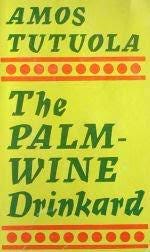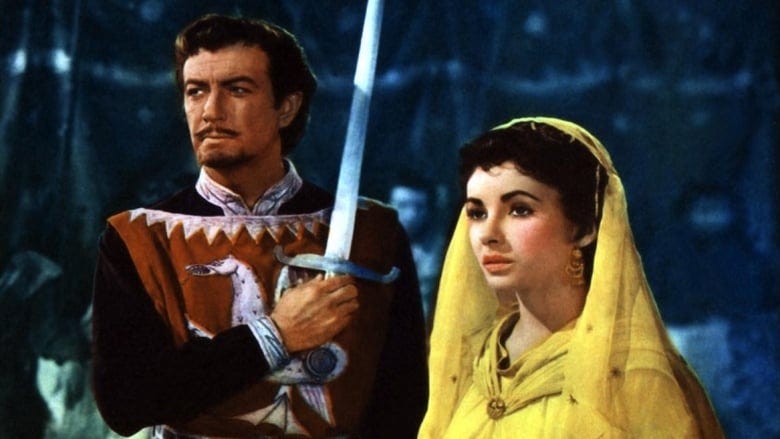The Palm-Wine Drinkard by Amos Tutuola, 1952 - Part 4
“The Investigator’s Wonderful Work in the Skull Family’s House” to “On the way to an unknown place”
Welcome back to Seventy years of books after my festive break, where I’m blogging my way through the seventy titles originally compiled for the Big Jubilee Read. The week I’m continuing with the first book, Amos Tutuola’s The Palm-Wine Drinkard.
“The Investigator’s Wonderful Work in the Skull Family’s House”
The palm-wine drinkard was able to outsmart the skulls by changing both his form and the lady’s which allowed them to escape and return home to her father.
The lady is very glad and relieved to have escaped her traumatic ordeal with the skulls. Unfortunately though, the cowrie is still rendering her mute and is also making a terrible noise which is very disturbing to everyone around her.
“There remains greater tasks ahead”
The palm-wine drinkard feels a sense of safety in the lady’s home and does not want to return to the skulls and ask them how to remove the cowrie from her neck.
The lady however is starving as she cannot eat with it there, and the image of the rope around her neck nicely emphasises her perilous situation. The palm-wine drinkard is therefore reliant on the skulls to be able to save her.
“Back to the skull’s family’s house”
The palm-wine drinkard is able to turn into a lizard and overhear the skull casting a spell which allows him to remove the cowrie and cure the lady of her inability to eat.
Once this is sorted, he marries the lady and settles in her town, though he still longs to be reunited with his tapster. The lady’s father is now withholding the tapster’s location so that he can keep his daughter with him.
They (sort of) have a tyrannical son who terrorises both their home and town. His unnatural birth and ageing process minimises any emotional attachment his parents may have otherwise had to him, though he is referred to as a “wonderful child” which indicates some pride, but also fear over his inhuman strength and power. His dominance means that his takeover of the town is quick and his inhumanity makes it easier for the townspeople to see him as pure evil and a problem to be solved, rather than a child.
“On the way to an unknown place”
Now that the palm-wine drinkard finally has the location of his beloved tapster, he commands his wife to leave the town, which she does, but soon returns to receive a gold charm from the ashes of their former home. They find a half-bodied baby in the rubble who soon makes their lives a misery and they are powerless against him.
The long sentences used in this chapter create the sense of tiredness and desperation the palm-wine drinkard and his wife feel. As they travel towards the music the baby longs to reach, hopefully their luck will start to change.
This week in 1952
On 5 January Winston Churchill made an official visit to the United States to reignite the “special relationship”. During his stay, he was invited to be a guest in the gallery while President Harry S Truman delivered his annual State of the Union address.
As I said in an earlier post, coffee was never popular enough in the UK to be subject to rationing, but on 14 January rationing of coffee, including “coffee substitutes” in the Netherlands ended after thirteen years of limiting supplies.
The day after, Melvyn Gale, a cellist and member of the Electric Light Orchestra was born and Paul Stanley, guitarist and member of Kiss, was born on the 20th. Curly Howard of the Three Stooges died on the 18th.
1952 song of the week: Hound Dog, Big Mama Thornton
After the sad news of Lisa-Marie Presley’s passing, her father’s music has once again been dusted off in the media, so it seemed appropriate this week to look at the original 1952 recording of one of his better known early songs.
This is a heavy blues track with powerful vocal and has a dramatically different feel to Elvis’ more famous version. Thornton’s vocal puts forward a confident woman done with a sponging, lazy man and the heavy use of guitar rather than brass underlining her contribution to the origins of rock-and-roll are grossly underplayed as the recording faded into the background of more up-tempo covers and response songs. Even worse, she was grossly underpaid for her contribution and is today, largely forgotten.
1952 film of the week: Ivanhoe
This is a swashbuckling adventure film based on Sir Walter Scott’s chivalric romance of the same name. It tells the story of Ivanhoe, a knight and contemporary of Robin Hood and his Merrie Men and the film opens with Ivanhoe’s quest to locate King Richard, much like the palm-wine drinkard’s quest to find his tapster. King Richard, like the lady with the skulls, is being kept prisoner, and Ivanhoe’s second quest is to source the large amount of silver needed to pay his ransom. He returns home, disguised as a minstrel, taking a leaf out of the palm-wine drinkard’s book of concealing your identity, and encounters trouble with his father, two fair maidens and many Norman knights – Ivanhoe is himself a Saxon and the plot of both the original novel and the film are a little outside the realms of historical accuracy.
The film is enjoyable overall, with themes of its time and features performances from Elizabeth Taylor and Joan Fontaine.
1952 product of the week: Babybel cheese
Babybel was launched in France this year, but the miniature version that consumers are familiar with today wasn’t brought out until 1977. Nowadays two billion wax wrapped Babybels are sold annually. Babybel’s most famous advertising campaign features a parody of The Regents’ 1961 song Barbara-Ann, and started appearing on television in the 1990s.
You can find all of the Seventy Years of Books archive here.








